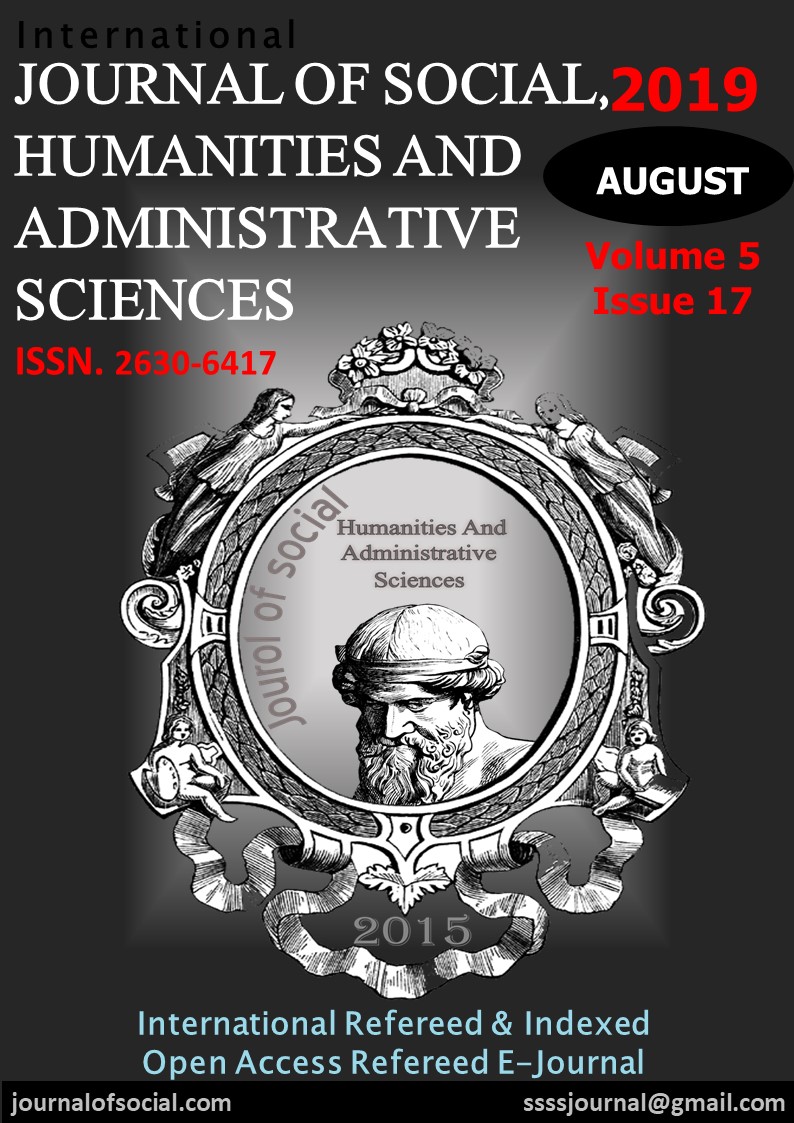Author :
Abstract
Preschool education is aimed to provide preschool children with rich and valuable experiences. Children’s fine motor development is required for their growth and academic success. This development is also critical to gain preliminary competencies for early literacy. The purpose of this study was to analyze the fine motor development and early literacy skill levels of preschool children. For this purpose, the relational screening model was chosen. Eighty preschool children were selected from the middle socio-economic class. Fine motor development test and early literacy assessment form was used to collect data. Results indicated that preschool children with inadequate early literacy levels had lower fine motor development scores while children with instructional early literacy levels had better fine motor development scores (p.≤.05). Besides, there was a positive significant correlation (p.≤.05) between fine motor development and print awareness sub-dimension, and fine motor development and expressive and receptive language sub-dimension of early literacy. According to these results, both print awareness, and expressive and receptive language sub-dimensions of early literacy had moderate level correlation (r=.54 and r=.44) with fine motor development. It can be said that children with better fine motor development also have better early literacy skills as well.
Keywords
Abstract
Okul öncesi eğitim çocuklara zengin ve kaliteli deneyimler edindirmeyi amaçlar. Çocukların ince motor gelişimi, onların sağlıklı büyüme ve akademik başarısı için gereklidir. Bu gelişim aynı zamanda erken okuryazarlık becerilerinin de alt yapısını oluşturur. Bu çalışmanın amacı çocukların ince motor gelişimi ve okuma ve yazmaya hazırlık becerilerinin incelenmesi amacı ile yapılmıştır. Çalışmada ilişkisel tarama modeli kullanılmıştır. Orta seviye ekonomik düzeye sahip, anaokuluna devam eden seksen çocuk örnekleme alınmıştır. Ölçme araçları olarak ince motor gelişim testi ve okuma yazmaya hazırlık değerlendirme formu kullanılmıştır. Sonuçlar okuma yazmaya hazırlık beceri seviyesi düşük ve orta olan iki grubun puanları arasında anlamlı bir fark olduğunu göstermiştir (p.≤.05). Ayrıca düşük seviyede okuma ve yazmaya hazırlık becerilerine sahip çocukların, ince motor beceri gelişimlerinin de düşük olduğu bulunmuştur. Çocukların ince motor gelişim puanları ile okuma yazmaya hazırlık beceri puanları arasında anlamlı ve orta derecede bir ilişki vardır (r=.54 ve r=.44). Buna göre çocukların okuma yazmaya hazırlık becerilerinin desteklenmesinde, ince motor gelişim alanı da dikkate alınmalıdır.
Keywords
- Bellocchi, S., Muneaux, M., Huau, A., Lévêque Y., Jover M. & Ducrot S. (2017). Exploring the Link
- Bellocchi, S., Muneaux, M., Huau, A., Lévêque Y., Jover M. & Ducrot S. (2017). Exploring the Linkbetween Visual Perception, Visual-Motor Integration, and Reading in Normal Developing and Impaired Children using DTVP-2. Dyslexia, v.23(3), p.296-315.
- Boz, M. (2015). Motor gelişim (içinde:Okul öncesi dönemde beden eğitimi, Ed: G. Duman), Hedef Yayıncılık:Ankara, p.163-184.
- Çağlak Sarı, S. (2015). Hareket etkinliği planlama ve uygulamaları (içinde: Okul öncesi dönemde beden eğitimi, Ed: G. Duman), Hedef Yayıncılık:Ankara, p.200-231.
- Delcamp, L. N. (1983). Relationships among conservation abilities, auditory and visual perceptionskills and school achievement of first grade students (Unpublished master’s thesis). University Of Florida.
- Demirler, Ö.F. (2016). 36-79 aylık çocuklar üzerinde uygulanan Beery-Buktenika gelişimsel görselmotor koordinasyon testinin geçerlik ve güvenirlik çalışması. (Yayımlanmamış yüksek lisans tezi). Okan Üniversitesi:Istanbul
- Demirler, Ö.F. & Arı, M. (2018). Beery-Buktenika gelişimsel görsel motor koordinasyon testinin 36- 79 aylık çocuklara uyarlanması. Turkish Journal of Primary Education, v3(1), p.1-18.
- Duman, G. (2016). Okul öncesi eğitimde beden eğitimi ve oyun. Eğiten: Ankara
- Erdoğan, T., Özen Altınkaynak, & Erdoğan (2013). Okul öncesi öğretmenlerinin okuma-yazmaya hazırlığa yönelik yaptıkları çalışmaların incelenmesi. İlköğretim Online, v12, p4.
- Gliner, J. (1985). Purposeful activity in motor learning theory: An event approach to motor skill acquisition. American Journal of Occupational Therapy, 20, 251–252.
- Hürmeriç Altunsöz, I. (2015). Sportif oyunlar (içinde: Okul öncesi dönemde beden eğitimi, Ed. G. Duman), Hedef Yayıncılık:Ankara, p.249-274.
- Karasar, N. (2018). Bilimsel araştırma yöntemi. Nobel: Ankara.
- Katz, R. (2003). Life expectancy for children with cerebral palsy and mental retardation: Implications for life care planning. Neuro Rehabilitation, v18, p. 261-270.
- Koçak, M. (2018) Okul öncesi eğitimde kullanılan okuma yazmaya hazırlık etkinlik planlarının incelenmesi. (Yayımlanmamış yüksek lisans tezi). Gazi Üniversitesi:Ankara.
- Logan, S. & Johnston, R. (2009). Gender Differences in Reading Ability and Attitudes: Examin -ingWhere These Differences Lie. Journal of Research in Reading, 32, 199-214. http://dx.doi.org/10.1111/j.1467-9817.2008.01389.x
- Milne, N., Cacciotti, K., Davies, K. & Orr, R. (2018). The relationship between motor proficiency and reading ability in Year 1 children: a cross-sectional study. BMC Pediatr. 2018; v18(1): 294.
- MoNE (2013). Early childhood education program, MEB Yayınları:Ankara.
- Neuman, S.B & Roskos, K.A. (1998). Children achieving: best practices in early literacy. International Reading Association, Newark, DE.
- Purtaş, Ö. & Duman, G. (2017a). Analyzing parkours of movement activity plans designed for children in early childhood education. Social Sciences Studies Journal, v3(10), p.1366-1372.
- Purtaş, Ö. & Duman, G. (2017b). The examination of movement activity plans applied in earlychildhood education in terms of various variables. Turkish Journal of Primary Education, v2(1), p.11- 29.
- Rohde, L. (2015). The comprehensive emergent literacy model: early literacy in context. Research Article, v23.
- Roskos, K.A, Christie, J.F. & Richgels, D.J. (2003). The essentials of early literacy instruction. Teaching and Learning About Early Literacy, p.52-60.
- Smith, J.C, Allen, A.S, Pratt, P.N. (1996). Occupational therapy for children. Mosby.
- Sparling, J., Ramey, C. T., Ramey, S. L. (2007). The Abecedarian experience. In M. E. Young, (Ed.)Early Child Development – From measurement to action: A priority for growth and equity, p.81‐99. Washington, DC: The World Bank.





